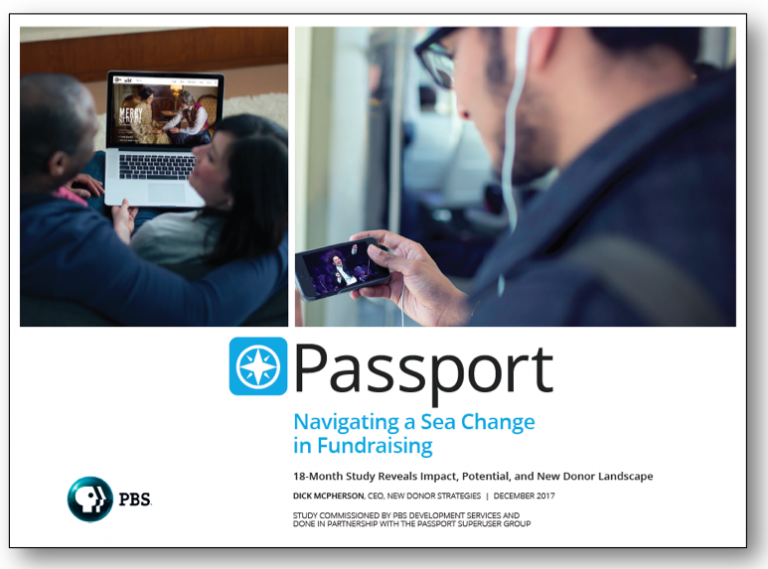Passport 18-Month Study Reveals Impact, Potential, and New Donor Landscape

Passport 18-Month Study Reveals Impact, Potential, and New Donor Landscape
Approximately eighteen months after Passport’s launch, and in partnership with the Passport Superuser Group, PBS commissioned interviews with fundraising professionals at local stations and their agency partners to gather key findings on stations’ fundraising experience and assess the implications of Passport for station sustainability.
Developed as a member video on demand (MVOD) benefit, and intended to fit with sustainer fundraising, Passport was launched on December 15, 2015. By the time of the report, 128 stations – or 93% of all eligible stations – offer the benefit to their members. The study also comes as Passport passed more than one million activations. As such, there is now sufficient data to begin drawing preliminary conclusions about Passport usage and its impact on station sustainability.

The report is part of the overall assessment of Passport and focuses on emerging fundraising lessons and issues.
Key highlights include:
- Passport’s launch was promoted aggressively on-air and online by most stations, resulting in rapid awareness, especially among members.
- GMs and fundraisers agree Passport appears to be a fundamental change in the viewing-fundraising
- New members represent upwards of 75% of Passport-triggered donations with a far more favorable ROI for acquisition than legacy channels.
- Passport members are typically about twenty years younger than traditional members, addressing a long-standing concern over stations’ aging traditional members.
- Most new Passport members are generated by PBS digital products, with stations’ promotion efforts such as email and website promotion, rarely accounting for more than 5-15% of Passport members.
- Early Passport member retention data is reportedly higher than traditional pledge members, and only slightly lower than Netflix.
- Many older members called local stations with Passport questions, resulting in increased demands on audience service departments.
- Passport is producing a large, distinct class of members whose viewing interests may be analyzed for engagement and fundraising.
- While PBS focuses on more program content and a smoother Passport user experience, stations have the task of integrating new Passport members with local programs, benefits and activities.

Questions? Contact Chas Offutt I Senior Director, Digital, PBS Development Services
